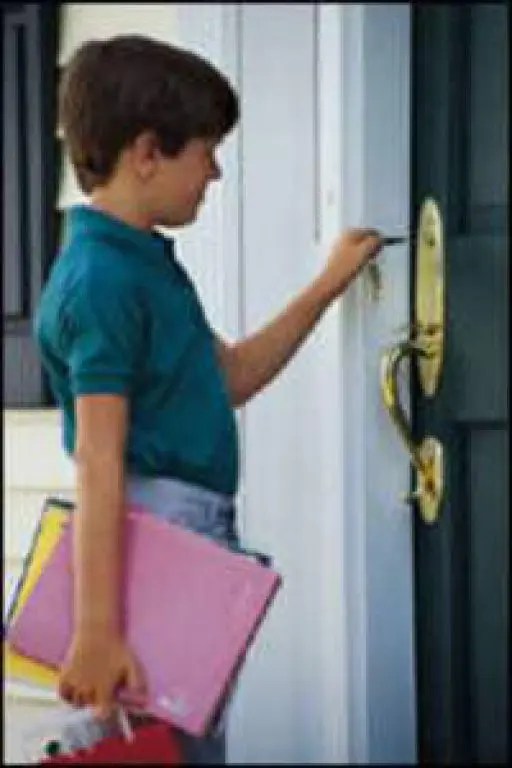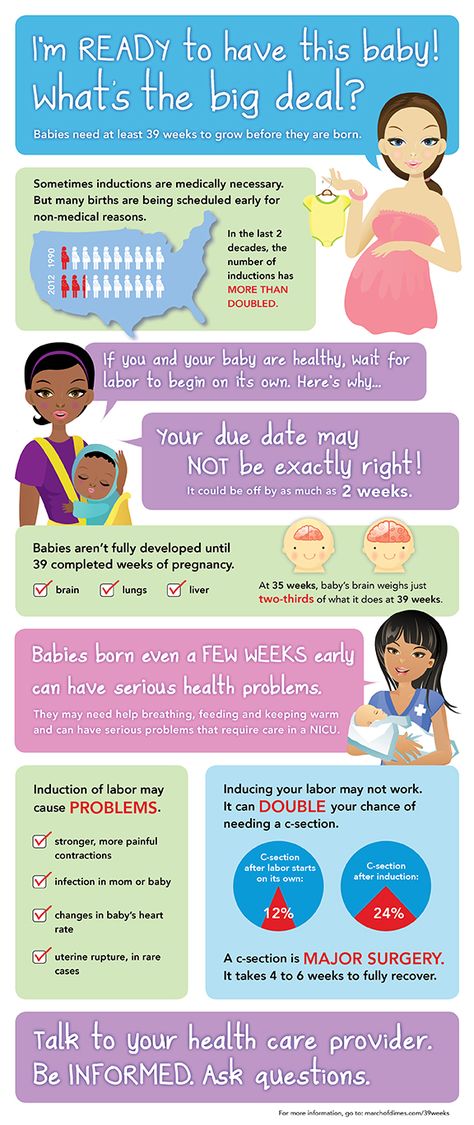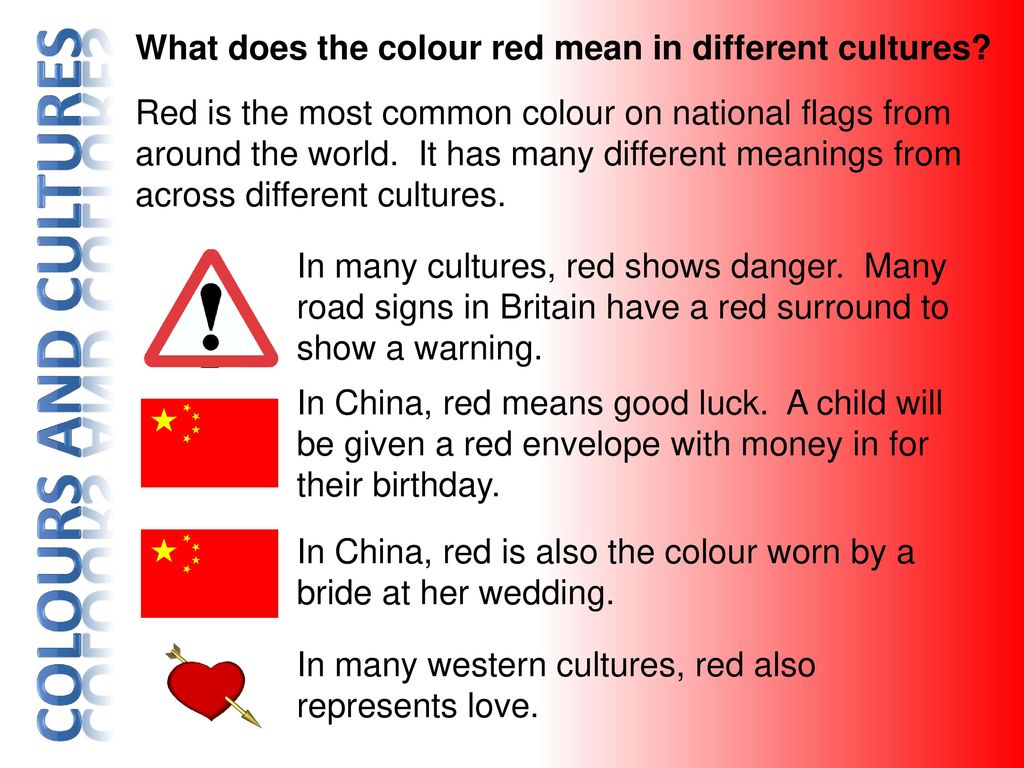How old can a child stay home alone in texas
Child Supervision
The kind of supervision children need depends on their age, maturity, abilities, and surroundings. Here is a guide to keeping children safe with proper supervision.
- How old does my child need to be to stay home alone?
- Can I leave a child alone in my car for a short period of time?
- What is neglectful supervision?
How old does my child need to be to stay home alone?
Answer: Texas law doesn't say what age is old enough for a child to stay at home alone. However, adequate supervision is critical to keeping kids safe. An adult caregiver is accountable for the child's care and inadequate supervision can be a type of neglect (neglectful supervision). Here are some of things you should think about when deciding how closely to supervise a child:
- How old, emotionally mature, and capable is your child?
- What is the layout and safety of the home, play area, or other setting?
- What are the hazards and risks in the neighborhood?
- What is your child's ability to respond to illness, fire, weather, or other types of emergencies?
- Does your child have a mental, physical, or medical disability?
- How many children are being left unsupervised?
- Do they know where you are?
- Can they contact you or other responsible adults?
- How long and how often is the child (or children) left alone?
Can I leave a child alone in my car for a short period of time?
Answer: No. Do not leave a child in a motor vehicle for any length of time. If children are trapped inside cars, especially in hot weather, they can suffer from heat exhaustion or heat stroke in a matter of minutes, leading to permanent disability or death.
Heat stroke, also known as hyperthermia, can cause shock, seizures, irregular heartbeat, and heart attack, as well as brain, liver, and kidney damage.
Leaving a child unattended in a car is a crime that is punishable under the Texas Penal Code, Title 5, Chapter 22, Section 10, Leaving a child in a vehicle:
(a) A person commits an offense if he intentionally or knowingly leaves a child in a motor vehicle for longer than five minutes, knowing that the child is:
(1) younger than seven years of age; and
(2) not attended by an individual in the vehicle who is 14 years of age or older.
(b) An offense under this section is a Class C misdemeanor.

Leaving a child unattended in a car is also a form of neglectful supervision that is investigated by Child Protective Services.
What is neglectful supervision?
Answer: When children are not adequately supervised, it may be considered “neglectful supervision”.
Neglectful supervision means "placing a child in or failing to remove a child from a situation that a reasonable person would realize requires judgment or actions beyond the child's level of maturity, physical condition, or mental abilities and that results in bodily injury or substantial risk of immediate harm to the child."
Neglectful supervision is also defined as "placing a child in or failing to remove the child from a situation in which the child would be exposed to a substantial risk of sexual conduct harmful to the child."
Neglectful supervision accounts for more than half all confirmed abuse or neglect in Texas.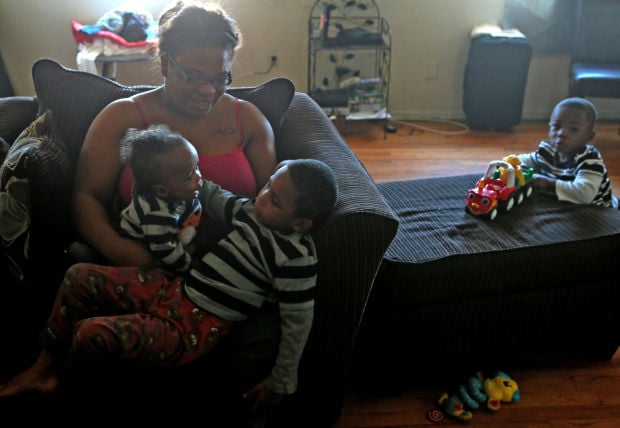 Neglectful supervision accounted for 75 percent of all confirmed child victims of abuse or neglect in 2011.
Neglectful supervision accounted for 75 percent of all confirmed child victims of abuse or neglect in 2011.
Call the Texas Abuse Hotline at 1-800-252-5400 if you suspect a child has been abused or neglected or have any questions about a situation you think might be abuse or neglect.
In an emergency situation, call local law enforcement or 911 immediately.
Is it illegal to leave a child alone at home or in a car in Texas?
Criminal
By Benson Varghese
Last Updated: June 24th, 2021
Published on: March 22nd, 2016
Table of Contents
1
Many parents face child care issues and, sometimes, they believe they have no other option but to leave their child alone at home while they go to work or run a quick errand. Similarly, it’s not uncommon for parents to leave their children in the car while they run into a store or restaurant.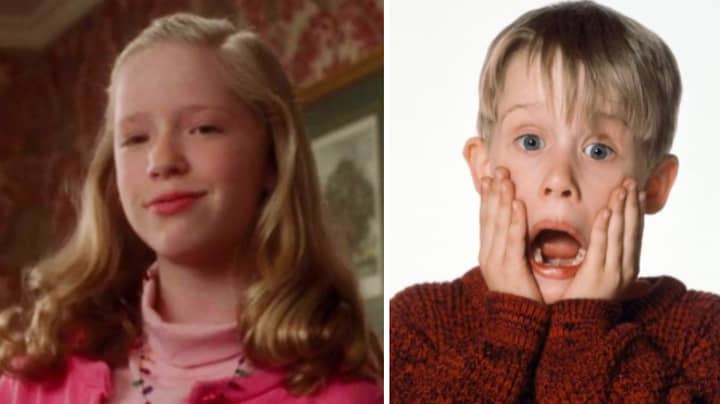
But is it illegal to leave a child alone at home or in a car? The short answer: it depends.
Depending on the circumstances and the age of a child, leaving a child alone at home or in a vehicle can lead to an arrest and serious consequences. In Texas, charges that could stem from leaving a child alone or in harms way include abandoning a child, endangering a child, or leaving a child in a vehicle. Abandoning and endangering are two separate felony offenses that apply to children under the age of 15. Leaving a child in a vehicle applies to children under the age of 7. Here’s a breakdown of all three offenses.
Abandoning a ChildTexas law doesn’t specify what age is old enough for a child to stay home alone. However, if you decide to leave a child under 15 at home alone and something bad happens – such as a fire, injury or crime – you could find yourself facing criminal abandonment charges.
Texas law describes child abandonment as leaving a child without providing reasonable and necessary care for the child – circumstances under which no reasonable, similarly situated adult would have left a child of that age and ability.
Under Texas Penal Code 22.041(b), a person commits an offense if, having custody, care, or control of a child younger than 15 years, he or she intentionally abandons the child in any place under circumstances that expose the child to an unreasonable risk of harm.
There are different degrees to this offense, depending on the facts and circumstances of the case:
If the individual abandoned the child but intended to return, it is a state jail felony punishable by six months to 2 years in a state jail facility and a potential fine up to $10,000.
If the individual abandoned the child and did not intend to return, it is a third-degree felony punishable by imprisonment of 2 to 10 years and a potential fine of up to $10,000.
If the individual abandons the child under circumstances that a reasonable person would believe would place the child in imminent danger of death, bodily injury, or physical or mental impairment, it is a second degree felony punishable by 2 to 20 years imprisonment and a potential fine of up to $10,000.
Under Texas Penal Code 22.041(c), a person commits child endangerment if he or she intentionally, knowingly, recklessly, or with criminal negligence, by act or omission, engages in conduct that places a child younger than 15 years in imminent danger of death, bodily injury, or physical or mental impairment. Child endangerment is generally punished as a state jail felony, punishable by six months to 2 years in a state jail facility.
For example, leaving methamphetamine in a child’s presence or leaving a handgun within a child’s reach could constitute child endangerment. It’s also not uncommon to hear about people being charged with child endangerment after leaving children locked in hot cars in the summer.
Notice for endangering a child, there is no requirement for the child to have been under the care, custody, or control of the actor. Additionally, the child must be placed in imminent danger.
What does Texas law say about leaving a child in a vehicle?Under Texas Penal Code 22. 10, it is illegal to leave a child alone in a motor vehicle for more than five minutes, if the child is younger than 7 and is not accompanied by someone 14 or older.
10, it is illegal to leave a child alone in a motor vehicle for more than five minutes, if the child is younger than 7 and is not accompanied by someone 14 or older.
This offense is a Class C misdemeanor, which carries a punishment range of up to $500.
What should you do if police suspect you endangered a child?
If police suspect you of abandoning or endangering a child, you should contact an attorney before talking to a detective or an officer. This is the single most important thing to remember if you are accused of a crime. Most people don’t realize that police are allowed to lie to you and are trained to elicit the answers they want from a suspect.
It’s also likely that Child Protective Services will become involved in the investigation. Again, it’s important to consult an attorney before talking to CPS. Anything you say to CPS will be given to law enforcement and can potentially be used against you and could also jeopardize custody of your children.
Contact us
As you can see, it can be illegal to leave a child alone and in a car in certain circumstances.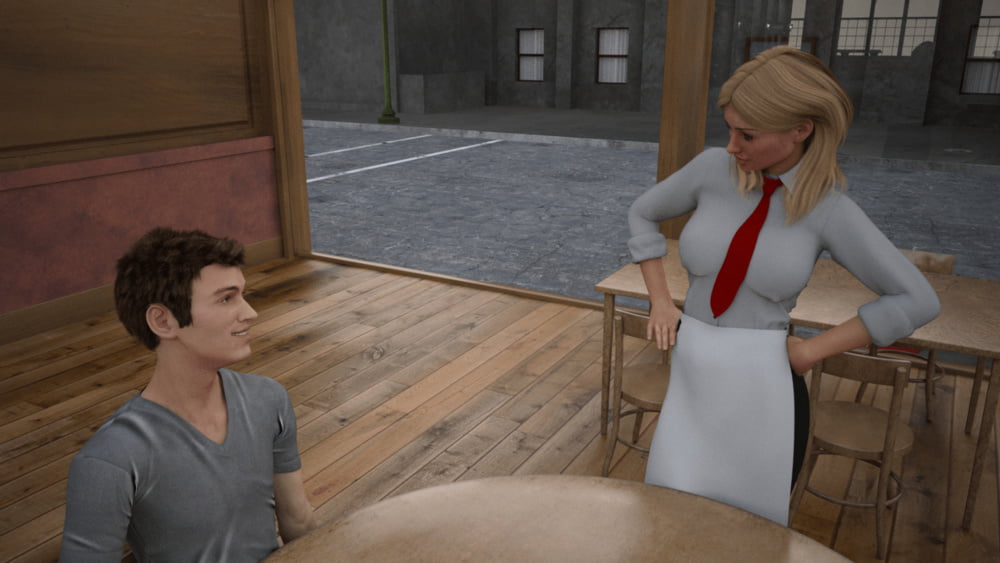 If you or a loved one is facing child abandonment or neglect or leaving a child in a vehicle, call us today at (817) 203-2220 for a complimentary strategy session. Our team of former prosecutors and Board Certified Criminal Lawyers are here to help. We have decades of experience and exceptional results handling cases involving crimes against children. During this call we will:
If you or a loved one is facing child abandonment or neglect or leaving a child in a vehicle, call us today at (817) 203-2220 for a complimentary strategy session. Our team of former prosecutors and Board Certified Criminal Lawyers are here to help. We have decades of experience and exceptional results handling cases involving crimes against children. During this call we will:
- Discuss the facts of your case;
- Discuss the legal issues involved, including the direct and collateral consequences of the allegation; and
- Discuss the defenses that apply to your plan and in general terms discuss our approach to your case.
You can also contact us online.
Is it possible to leave a child at home alone in the US? What does the law say?
Can I leave my child at home alone in the US? - This is a question Russian-speaking parents from different American states ask each other all the time.
It is believed that in the USA children have always been under the supervision of their parents, there is overprotection, and “here we once ran from dawn to dusk alone…” from a very early age: they themselves got home from school, walked on their own and alone waited for their parents from work.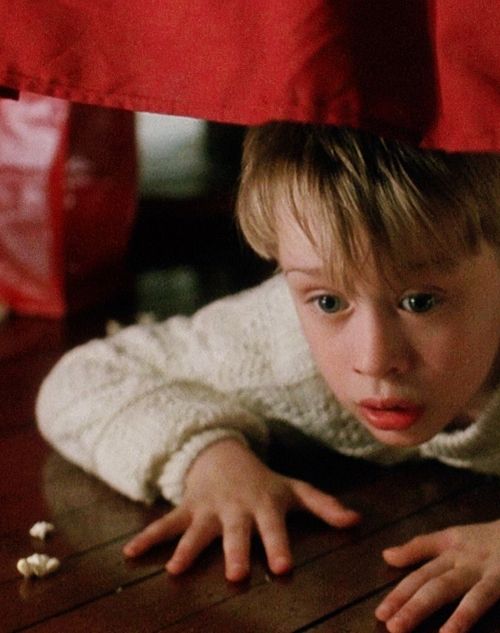
Since they carried the keys to the house with them (sometimes around their necks, as we did in our Soviet childhood), they even received a special designation Latchkey Kid . Or “kid with a lock”, “child-master key”.
It is believed that this term appeared in 1942, when the Americans entered World War II: there were no men at home, and mothers had to work hard.
Since then, the US has been following the statistics, believing that a large percentage of latchkey Kid indicates the unsatisfactory economic condition of the state or even the country as a whole.
Although the conclusions from numerous studies over the past seventy years have been very different. For example, one study found that 90,008 middle school students (approximately sixth through eighth grades) who stayed at home alone for at least three hours had higher levels of behavioral problems, were more likely to suffer from depression, and showed lower levels of self-esteem than those students who almost did not stay at home alone.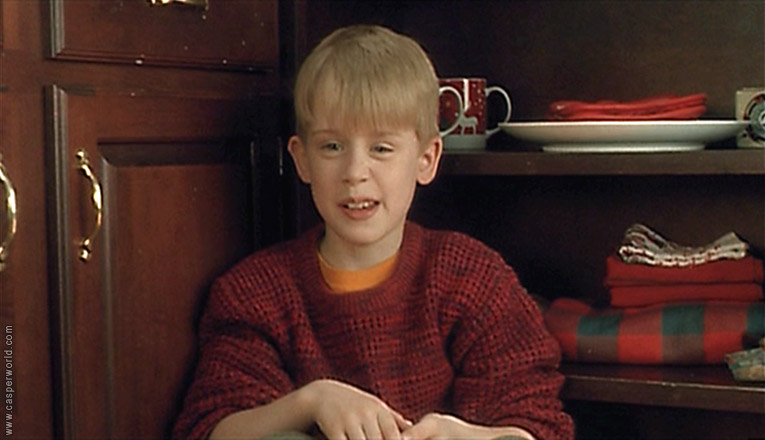
However, a positive effect of the fact that the child spends time without supervision can be independence and self-confidence - this is also shown by research.
Approximately 46% of parents in the US currently work full-time outside the home. By the way, in 1970 this figure was 31%.
At the same time, according to the University of California (Irvine), American children are now much safer than ever before. Sociologists at this university conducted their own research in 2016. In their opinion, 90,008 parents' fears of children left at home alone have been systematically exaggerated in recent decades. And this happened not because this practice became more dangerous, but because it became socially unacceptable. You can read more about the study at the link, however, only in English.
No, no, yes, the American press will tell about another arrest of parents (usually mothers) for leaving children of different ages unattended.
So, in December 2018, Taylor Cumings was arrested for leaving her two sons, aged 4 and 7, while she went to work.
Danielle Lena Pearson went to jail for leaving three children unattended, the youngest of whom was six months old and the oldest four years old. She was not at home for more than two hours.
And Susan Terrillion got into the police because her children, eight and nine years old, were left at home alone while she ran to pick up food ordered for them. She was away from home for about 45 minutes.
Photo by Kevin Gent/ UnsplashThe stories described above happened in different states. In some, they could not have happened at all, because state laws do not specify the age at which a child can be left unattended. In some cases, leaving a child even for a short time can lead to very serious consequences.
Today the SAFEKIDS National Campaign recommends that no child be left alone at home unless they are twelve years old.
But
Only three states in the country have laws that set minimum age limits.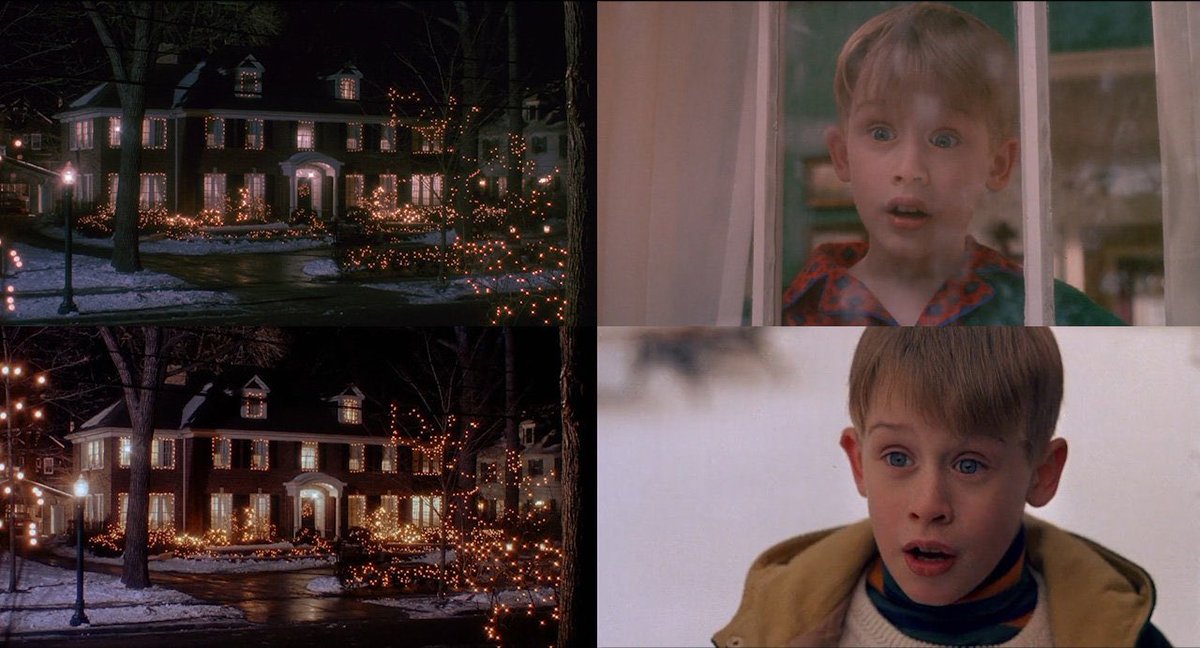 These are Illinois, Oregon and Maryland.
These are Illinois, Oregon and Maryland. The other 47 states do NOT have this age in their laws.
Can I leave my child at home alone in the US? Consider the situation for each state
Alabama
The state has a child neglect law. It states, “neglect or abuse of a child includes failure to provide adequate food, clothing, housing, medical care or supervision.” There is no explanation for "supervision".
Alaska
The State Department of Health and Human Services believes that parents can make their own decisions: “There are no consistent community standards that describe when and under what circumstances children may be left alone or in the care of other children. Parents should decide for themselves when it is safe and appropriate. The level of maturity and experience of each child is different, and parents should take this into account when making a decision.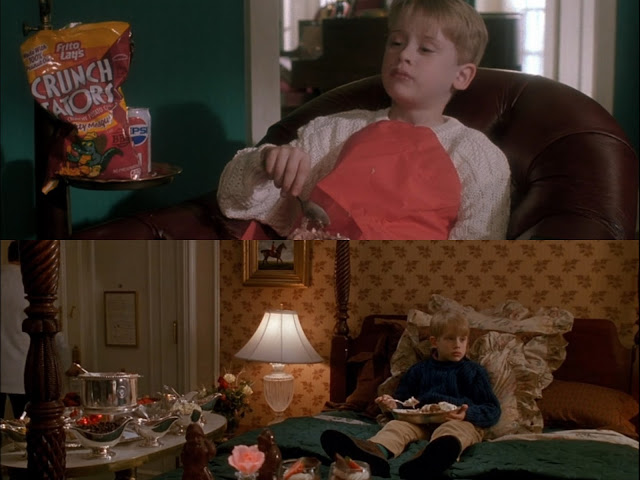 ”
”
Arizona
Arizona State Law states: “A parent is responsible for the decisions he or she makes regarding their children being left alone. However, the law requires the Arizona Department of Economic Security, Department of Child Safety (DCS) to investigate reports of neglect that include a lack of follow-up if a child is at an unreasonable risk of harm.”
In general, keep as much as you like if you feel like it, but be prepared for the fact that if something happens, you will be punished.
Arkansas
Some public schools have rules about what age a child can walk from a school bus to their home on their own. This is usually nine years or older. State parents are also discouraged from leaving children in the care of siblings or anyone under the age of 13.
Idaho
Complete lack of information online.
Iowa
The State Department of Human Services website states: “State law does not specify an age at which a child may be left alone.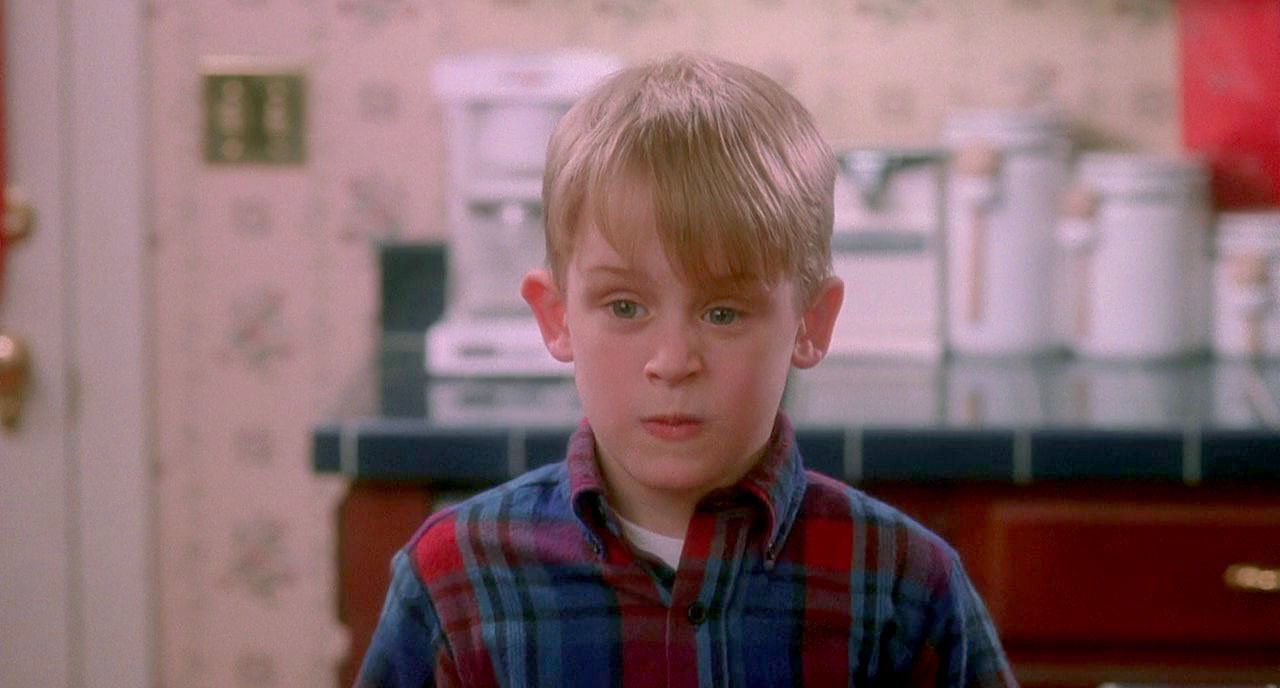 Every situation is unique.”
Every situation is unique.”
Wyoming
There are no rules or guidelines on this topic.
Washington.
According to the Washington State Department of Human and Human Services, there are no laws or regulations on how best to leave a child at home alone, but “in general, children under the age of 10 should not be left unsupervised, and children and younger children should not be left alone even for a few minutes.”
Virginia
The State Department of Human Services website states: “Virginia law does not specify an age beyond which a child can legally be left alone. Age alone is not a good indicator of a child's level of maturity. Some very mature 10 year olds may be ready for self care, while some 15 year olds may not be ready due to emotional issues or behavioral difficulties.”
West Virginia
The West Virginia children's handbook says, “…age alone is not a very good indicator of a child's maturity level. ” State parents must make their own decision based on the child's maturity level.
” State parents must make their own decision based on the child's maturity level.
Wisconsin
Various state and city agencies seem to think that 12 is the legal age. “There is no magic age… But there are signs that your child may be ready, such as if your child can get ready for school on time, do homework without much help, and talk to you about their feelings….”
Vermont
The Vermont Department of Children and Families website states: “There is no generally accepted age… Guardians and parents should consider the child’s physical, mental, developmental, and emotional maturity and needs, as well as their readiness to be alone. Adults need to be sure that children have the skills and maturity to handle uncontrollable situations safely. It is not recommended to do this before the age of 11.”
Hawaii
State guidance refers to the recommendation of the American Academy of Pediatrics and says that children should be supervised until at least eleven, preferably twelve.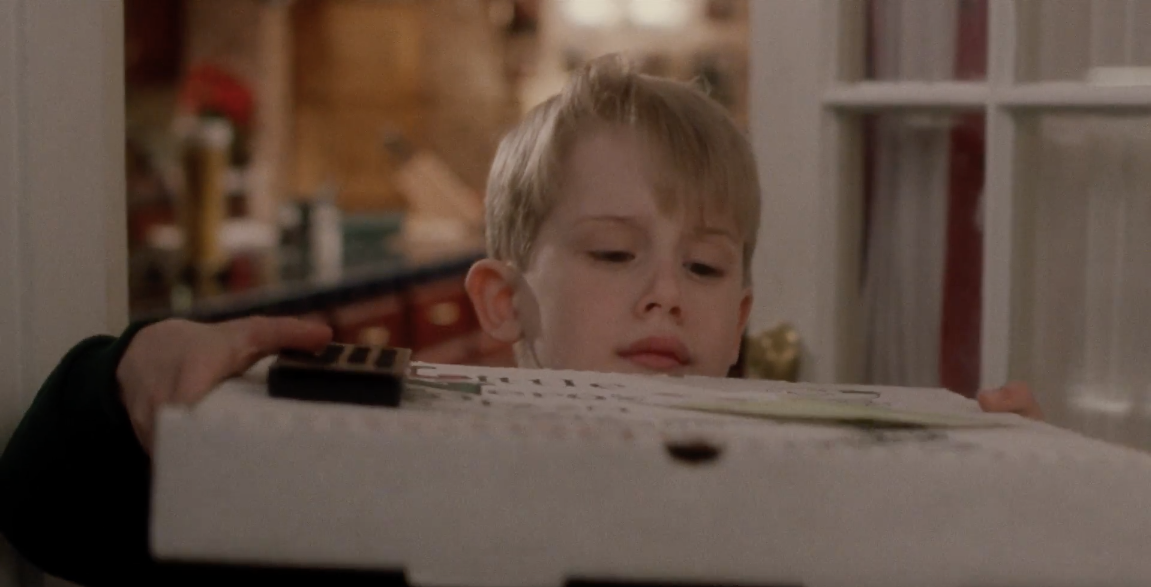
Georgia
According to the State Department of Human Services, Georgia does not have child care laws, but local child welfare agencies have guidelines that they follow. And they are: children under eight cannot be left alone. Children between the ages of 9 and 12, depending on the level of maturity, may be left alone for no more than two hours. Children aged 13 and over, provided they are developing for their age, may be left alone and even babysit with parental permission up to twelve hours a day.
Delaware
The state does not have a law governing the age of a child, but local child welfare agencies will investigate any report that a child under 12 years of age has been left at home alone.
Illinois
C Illinois laws are among the most stringent in the US when it comes to a child left unattended. Leaving children alone in this state is prohibited until the age of fourteen.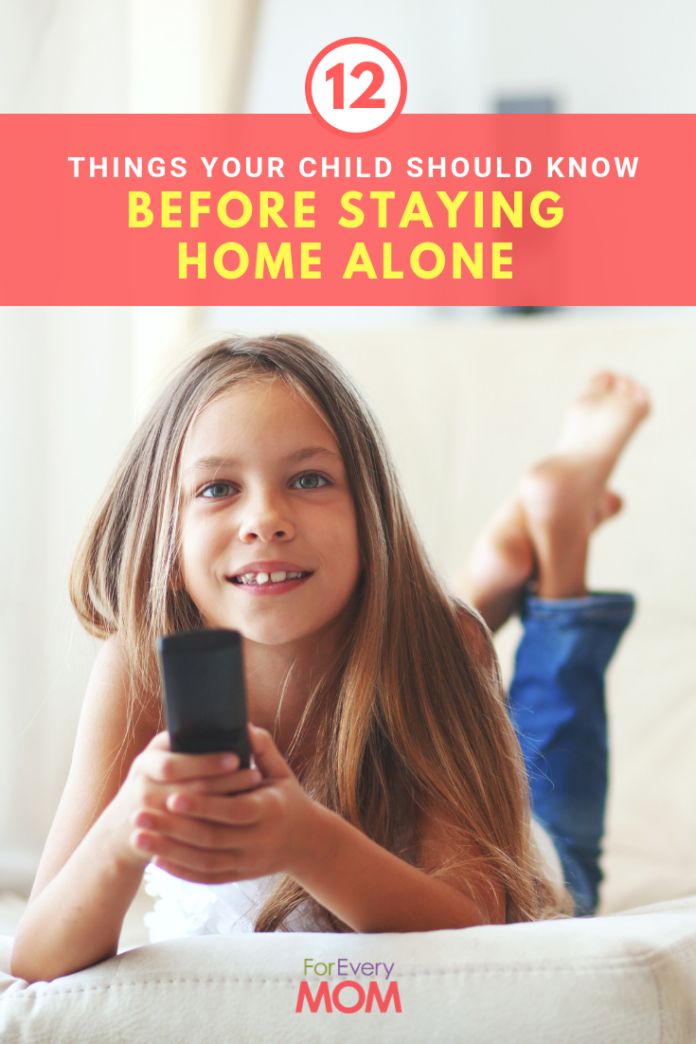
Indiana
Indiana has no special law or government. The Child Abuse Prevention website states: “There is no right answer to this question. There is no magical age when a child suddenly becomes responsible and mature.”
The following are ways to assess a child's ability to make a more informed decision.
California
There is no minimum age, there is a checklist on the State Department of Education website to help parents understand if their child is ready to be home alone for even twenty minutes.
Colorado
State child welfare authorities recommend that a child be left alone for a short time after the age of twelve.
Connecticut
On the state Department of Children and Families page, you can find a recommendation stating that “…experts believe that a child must be at least 12 years old before he can be left alone. And, and at least 15 before he can take care of the youngest children in the family. This is the minimum age. But not every child is ready even then.”
This is the minimum age. But not every child is ready even then.”
Kansas
The Department of Children and Families website suggests the following: “Young children aged 0 to 6 should not be left alone, even for short periods of time. Children aged 6-9 should only be left for short periods of time, depending on their level of maturity… Children aged 10 and over could probably stay for longer periods…”
Kentucky
Online at State 9 Child Protective Services0009 you can find information that if you leave a child under the age of 11 alone, you may be investigated for neglect of children.
Louisiana
Under state law, you can leave your child alone at your discretion, however, if this resulted in an incident, the court will definitely assess the level of maturity of the child, how long he was left alone, the situation in the family as a whole and much more .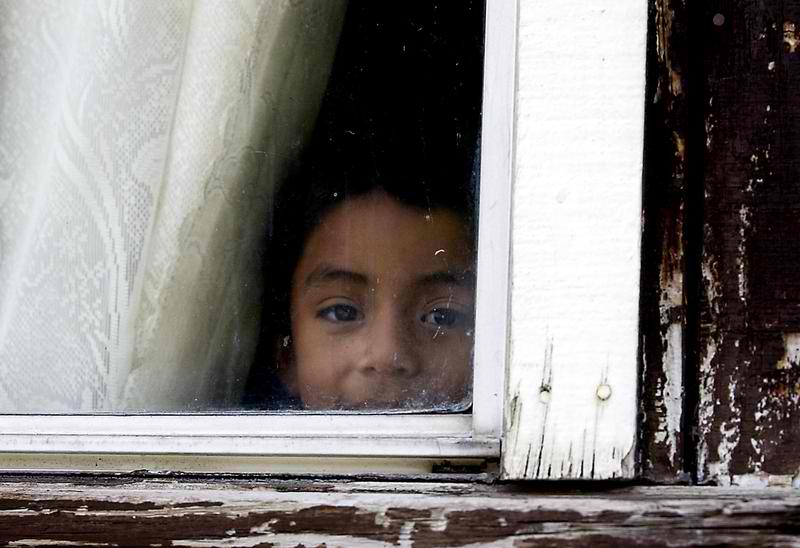
Maine
All at the discretion of parents and guardians.
Maryland
No child may under any circumstances be left alone unless they are 8 years of age. At the same time, a 13-year-old child can look after a child under the age of 8 years. A person who breaks this law is guilty of a misdemeanor and may be fined not more than $500 and/or spend up to thirty days in jail .
Massachusetts
Everything is decided on an individual basis.
Michigan
Under the State Child Protection Act, age is determined on a case-by-case basis. However, in general, it is not recommended to leave children under the age of ten or twelve alone.
Minnesota
State child welfare agencies do not recommend that children under 12 be left at home alone.
Mississippi
According to the State Department of Child Welfare, the appropriate age at which a child can be left alone “depends on the maturity of each child. ”
”
Missouri
There is no legal age limit, but the Child Abuse Hotline accepts messages if a child under the age of eight is left alone for more than three hours.
Montana
The website of the Department of Health and Human Services states: “You decide, it all depends on your child and your situation.”
Nebraska
Consistent with state guidelines, children over the age of seven may be old enough to be alone. And children older than 11 can already look after younger children. Preschool children (six and under) should never be left alone, and children under 11 cannot supervise children under six.
Nevada
The decision is made by the parents, but the home must be child-friendly—safe, clean, comfortable temperature, and enough prepared food.
New Hampshire
No rules.
New Jersey
According to the New Jersey Department of Children and Families, “…some children may be left alone for short periods of time (for example, while their parents are in the store). … But should not be left alone for long periods of time.” If the local guardianship authorities receive a message that the child is at home for one long period of time, then they will conduct a check.
… But should not be left alone for long periods of time.” If the local guardianship authorities receive a message that the child is at home for one long period of time, then they will conduct a check.
New Mexico
The state does not have its own law or guidelines, each city and county has its own.
New York
The State Children and Family Services notes, “Some kids are responsible, smart, and independent enough to be alone at age 12 or 13. In the same way, there are teenagers who are too irresponsible or have special needs, which means they cannot be left at home alone.”
Ohio
The Children's Trust website states: “Ohio law does not set a specific age after which a child can legally be home alone. However, you can check these recommendations with your local guardianship authorities.”
Oklahoma
State Department of Human Services says, “There is no law or policy in Oklahoma regarding how old a child must be to be left alone.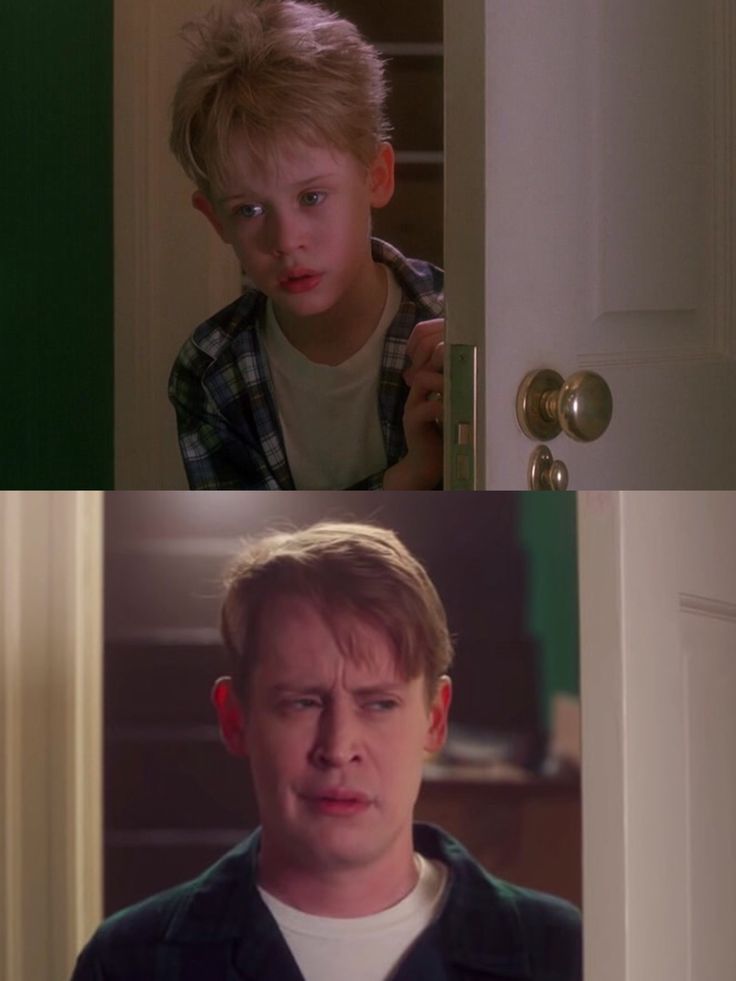 … But infants and children under the age of 6 should never be left without adult supervision. Typically, elementary school children who demonstrate the ability to be responsible and mature can be left alone for an hour to two hours during the day with access to a responsible adult.
… But infants and children under the age of 6 should never be left without adult supervision. Typically, elementary school children who demonstrate the ability to be responsible and mature can be left alone for an hour to two hours during the day with access to a responsible adult.
Children between the ages of ten and twelve who demonstrate the ability to care for themselves unaided may be left alone for up to four hours during the day. Children of the same age can care for one or two children from the age of six if they have constant access to a responsible adult.”
Oregon
The state's child neglect law states that a child must be at least 10 years old if the parents decide to leave him at home alone.
Pennsylvania
No rules. True, local family law lawyers refer to the recommendations of various organizations and say that children, starting from the age of ten, can already be left alone.
Rhode Island
Back in 2016, Rhode Island legislators proposed legislation to prevent children under the age of ten from staying at home alone. And older children spend the night alone. But it has not yet been accepted.
And older children spend the night alone. But it has not yet been accepted.
North Carolina
The state has no laws or guidelines, however state fire code GS 14-318 says that if you leave a child under the age of 8 unattended and a fire breaks out as a result, you will be found guilty .
North Dakota
Children under nine years of age should not be left unattended for more than two hours during the day. Children aged 10-11 may be left alone for longer periods of time.
Tennessee
The state website notes, “There is no set legal age for children to be home alone. Parents should decide this on their own, keeping in mind the child's maturity level and safety issues. … Obviously, children under the age of ten should not be left unsupervised at any time. In most cases, older teens can be left alone for a short time.”
Texas
The State Department of Family and Protective Services website states: “…Adult guardian is responsible for caring for a child, and inadequate supervision may be considered child neglect.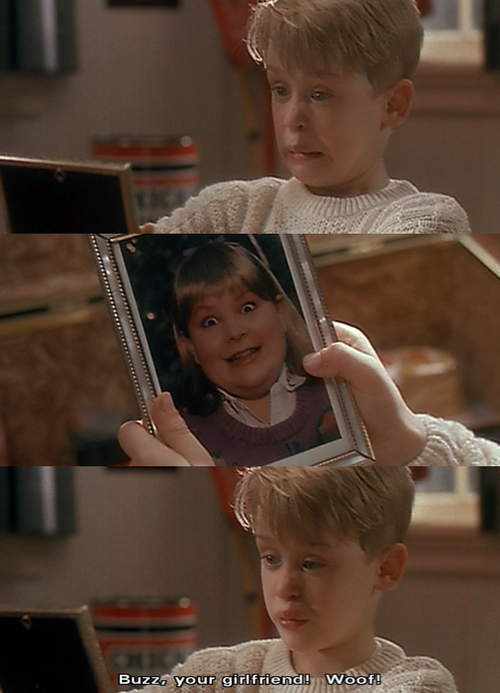
South Dakota
South Dakota Safety Board: “Don't expect kids under 10 to take care of younger siblings, don't leave kids under 6 in the care of older siblings.”
Utah
The website of the University of Utah offers the following advice to parents and guardians: only during the day or evening. Children 11 to 12 years old can be left alone for up to three hours during the day, but not late at night. Children between the ages of 13 and 15 may be left unattended, but not overnight. Children aged 16 or 17 can be left unsupervised, and in some cases up to two nights.”
South Carolina
A guideline published by the Children's Fund of South Carolina states: “You should not leave a child under 9 years of age. home alone even for a short period of time. Starting from the age of ten, a responsible child can be left for 30 minutes - one hour. During this time, the child should be able to maintain contact with an adult.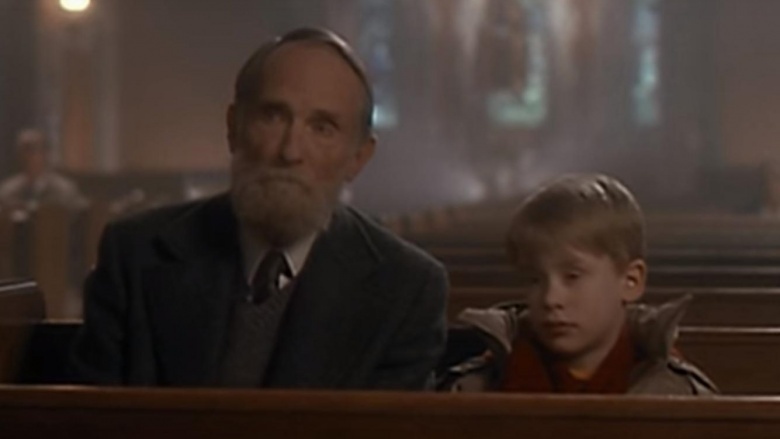 ”
”
Florida
Florida Department of Children and Families refers to the national recommendation we cited above and recommends that children not be left alone until the age of twelve, at a minimum, and, if the parents choose to do so, ask the child follow-up questions.
Your local CPS knows the exact rules for your state.
When in doubt, call them and ask.
See also “I was sent to prison for leaving my seven-year-old daughter alone for two hours” Can I leave my child at home alone? For an hour? And for two? With tablet or without? At what age? Every parent invariably faces these questions, because the moment when you desperately need to “run out for literally five minutes” comes to everyone. Especially for "Oh!" this topic is considered by our expert, child psychologist Anna Skavitina, not only from a psychological point of view, but also from the point of view of the law. Anna Skavitina, psychologist, analyst, member of the IAAP (International Association of Analytical Psychology), supervisor of the ROAP and the Jung Institute (Zurich), expert of the journal "Psychologies" — Help us! My son is not left alone for a minute, I can't even go to the pharmacy. - He is 5 years old, and you want him to stay at home alone, without adults? - Well, yes! Mothers on the playground say that their children are left alone calmly. Tablet in hand - and that's it, silence. You can even go to the supermarket. It doesn't save my tablet, it hangs on me anyway. My mother also left me at home from the age of three. Milk and a sandwich on the table, and ran away on business. I was sad, of course, but I didn’t get hysterical, I didn’t cling to her. — Yes, it happened to many children. In the USSR, there was not even a law that would regulate at what age a child can be left at home alone. When would parents work if they were busy looking after children? No wonder this generation is called the generation of "Uncle Fyodor". No one was particularly surprised that a six-year-old boy lives alone in the village with a cat and a dog. - What's wrong with that? We survived! — Yes, they survived. Do you know the term “survivor error”? — No. - The one who was left at home, and he did not survive, can no longer tell anything. This is the so-called survivor bias. But if I survived, then this is normal, or not so harmful. I survived! For example, parents beat their child in a soft spot, on the head, but they do it solely for the benefit and education, because they, the parents, once survived, coped with the same difficult and terrible situation. And since they survived, it means that it is useful or not so harmful for their child. After all, no one will remember those who were beaten, whose life turned out unsuccessfully, or even did not work out at all. Maybe they decided not to have children either. By chance. It just happened. Somehow, the children themselves did not start to have, and it’s impossible to find a loved one for family happiness, otherwise they would give birth to so many children. Survivors answer you when you ask for advice. They once made the right decision for themselves, managed to adapt in difficult conditions. — So you can't leave a child alone at the age of five? Is there a law? - I'm not a lawyer, I'm a psychologist, but I know that there is a law in Russia. There is no direct prohibition or permission to leave children at home from a certain age in Russian legislation, there is only an indirect one. However, in the Criminal Code of the Russian Federation there is article 125 “Leaving in danger”, which says that leaving a minor at home, parents will be punished. Article 125. Leaving in danger had the opportunity to provide assistance to this person and was obliged to take care of him or himself put him in a state dangerous to life or health, - So, in Russia, leaving a child without help is unacceptable until they reach the age of 14. It is also a violation of the law for a child under the age of 18 to be alone on the street and in public places without being accompanied by responsible adults from 22:00 to 06:00. If the child is staying somewhere away, then the parents are obliged to come for him. - I am literally chained to the child, I need to dress and collect it in order to go outside, to get to the pharmacy. This is not always convenient. It's easier to leave him at home and run out quickly. — I agree. There are situations when it is difficult to go out alone with children, especially when you have more than one child, but several, or if the children are sick. Do you have a husband, neighbors, girlfriends, familiar mothers from the playground, relatives? - Yes, but it's not always convenient to ask for them. — I understand that it is difficult for mothers to cope without the support of another person. But this is a matter of your child's safety. And your responsibility. Do you know the phone numbers of all your friends in order to help each other out? Now in big cities there are many delivery services that can help in critical situations. - No, I don't know the phone numbers. By the way, it's a good idea, you can create a general chat to help each other. But what's so terrible about running out for a minute if the child stays on his own and doesn't act weird? - One day I stopped near a sobbing woman who had fallen and broken her leg after slipping on the ice. She called an ambulance and asked: "Is there someone at home?" She began to sob even harder, “Yes. Three year old child. One!" Mom decided to "shop around the shops while he sleeps." Where is the husband? Business trip. Does anyone have the keys? Yes, at my mother-in-law not far from Moscow. Did you call her? Not yet. We find it hard to believe that something could happen unexpectedly - to us, to the electrical wiring, to the gas stove. But this, unfortunately, happens, and often. Even if you have the most independent and responsible child in the world, he is not always able to cope with what is happening. When you leave home, even "for a moment", children may imagine that you are leaving forever! Any child knows that the safest place in the world is next to his mother, and tries, if possible, to stick to it. Let your child play alone. First next to you, then in another room. So he will gradually be convinced that he may be alone for some time, but you are always somewhere nearby. Allow your child to do as much self-care work as possible. Dress yourself, undress, pour water into a glass, use a fork and knife, cut a salad. Show where the food is, where the child can get it from. Show how to use household appliances correctly. Turn on and off the kettle, stove, washing machine. Teach them not to open the door to strangers, use the phone, know the numbers of parents, relatives, rescue services. Let all numbers be written down on paper and lie in a conspicuous place, and not just in the phone's memory. Just in case, say what you need to report by phone to the rescue service: full name, address, situation. Consider a safe window closing system from the moment your child starts moving around the apartment, that is, by the end of the first year of life. Mosquito nets often deceive children by giving them the false impression that they can be leaned on. A child should be able not only not to open the door to strangers, but also to quickly get out of the apartment if the source of danger is inside. As soon as your child learns to be in an apartment on his own, that is, not to sit for an hour with a tablet, but consciously begins to understand how to cope with different situations inside the house, then the age of leaving him alone for a while will come. Some children can be left for a while already at 7-8 years old, others at 14-15 too early. In European countries, children from the age of 16 are allowed to be at home alone. In the US, everything changes from state to state, but today there is a ban on being at home alone if a teenager is under 15 years old. In some states, the age has been increased to 16-17 years. In Nevada, children under the age of 21 are not only allowed to be unsupervised at home, but also not to go outside after 21:00. In Japan, boys from 12 years old, and girls from 11 years old can stay at home without adults, and in India - from 8-10 years old. At the same time, marriages in this country are concluded at the age of 12-13 years. The main thing is that the responsibility for children and testing their ability to stay at home alone lies with the parents. And he is already 5 years old!
And he is already 5 years old! 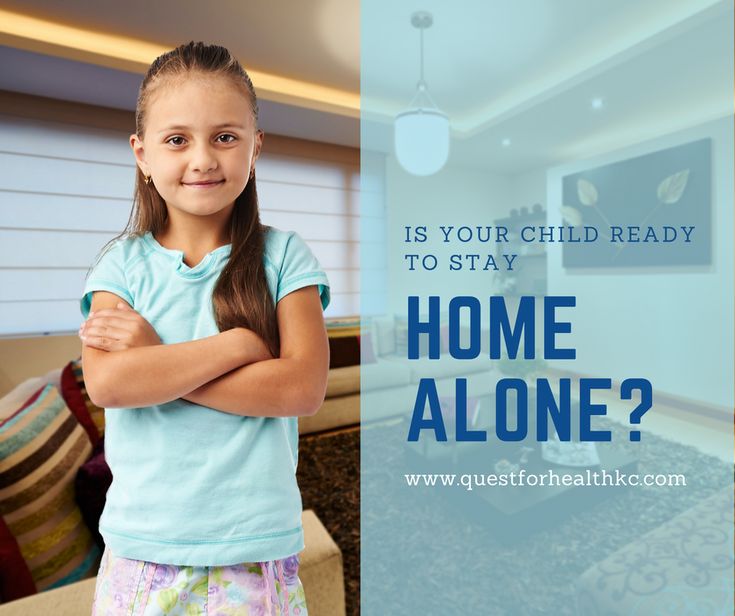 And what is it?
And what is it? 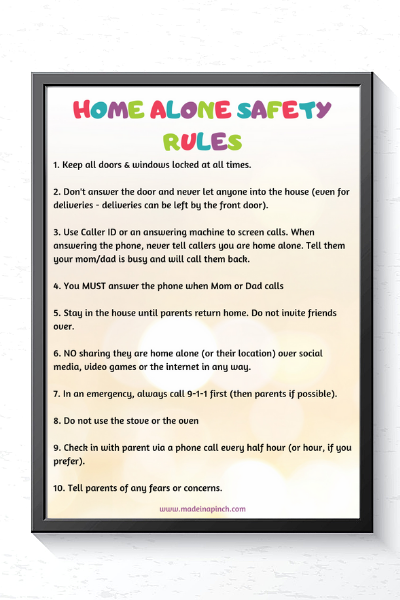 But it is not at all necessary that their advice will help you. And, of course, there are no universal recommendations, otherwise everyone would have been happy for a long time. One mother told me that her baby slept so well that in the evenings she went to the cinema. She said that he woke up only once - she found him screaming. Well, comforted me. How many times he broke down while she left him alone, we will never know. Alive is the main thing. She is sure that there is nothing wrong with leaving the child unattended while he sleeps.
But it is not at all necessary that their advice will help you. And, of course, there are no universal recommendations, otherwise everyone would have been happy for a long time. One mother told me that her baby slept so well that in the evenings she went to the cinema. She said that he woke up only once - she found him screaming. Well, comforted me. How many times he broke down while she left him alone, we will never know. Alive is the main thing. She is sure that there is nothing wrong with leaving the child unattended while he sleeps.  Juveniles, according to the civil code of Russia - "minors who have not reached the age of 14 years."
Juveniles, according to the civil code of Russia - "minors who have not reached the age of 14 years."
shall be punishable by a fine in the amount of 50 to 100 times the minimum wage, or in the amount of the wage or salary, or any other income of the convicted person for a period of up to one month, or by compulsory works for a term of 120 to 180 hours, or by corrective labor for a term of up to one year, or arrest for up to three months.  By the way, a lot of people just don't know this. If you left a child under the age of 14 alone at home - and nothing happened, then this is one situation, but if something does happen, then you bear criminal responsibility for this, among other things. But now we will discuss with you not the legislative framework, but why you should not do this, and also try to understand when you feel the need for this and what can be done to avoid such situations.
By the way, a lot of people just don't know this. If you left a child under the age of 14 alone at home - and nothing happened, then this is one situation, but if something does happen, then you bear criminal responsibility for this, among other things. But now we will discuss with you not the legislative framework, but why you should not do this, and also try to understand when you feel the need for this and what can be done to avoid such situations. 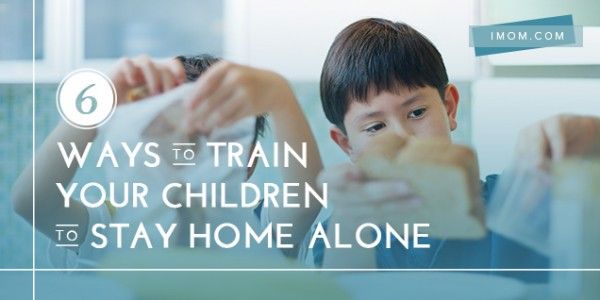
 Why? The mother-in-law will yell at me. I asked my mother-in-law to call immediately. The ambulance took the woman away on a stretcher - a double open fracture. They said that she would definitely spend a few days in the hospital. This is the situation of leaving the child in danger. I can understand that this woman was tired of sitting at home, she really wanted to go out for a while, she was used to doing everything herself, not asking anyone for help. She didn't expect anything terrible, of course. I will not tell other scary stories, believe me, I have accumulated a lot of them over the years of work, and resuscitators and traumatologists have a lot more.
Why? The mother-in-law will yell at me. I asked my mother-in-law to call immediately. The ambulance took the woman away on a stretcher - a double open fracture. They said that she would definitely spend a few days in the hospital. This is the situation of leaving the child in danger. I can understand that this woman was tired of sitting at home, she really wanted to go out for a while, she was used to doing everything herself, not asking anyone for help. She didn't expect anything terrible, of course. I will not tell other scary stories, believe me, I have accumulated a lot of them over the years of work, and resuscitators and traumatologists have a lot more.  If a child does not let his mother out of his sight - this is the most striking indicator that he is not sure of his own safety, does not know how he can cope in different situations alone, without a mother. Our task is not to convince him in words - no one will believe you, but to teach him to act. The main thing in this matter is gradualness. Let's discuss how to teach your child to be independent so that later you can leave him at home safely so that he can cope with his life in the future. Our task is not to lead by the hand until old age, but to teach how to live and survive.
If a child does not let his mother out of his sight - this is the most striking indicator that he is not sure of his own safety, does not know how he can cope in different situations alone, without a mother. Our task is not to convince him in words - no one will believe you, but to teach him to act. The main thing in this matter is gradualness. Let's discuss how to teach your child to be independent so that later you can leave him at home safely so that he can cope with his life in the future. Our task is not to lead by the hand until old age, but to teach how to live and survive.
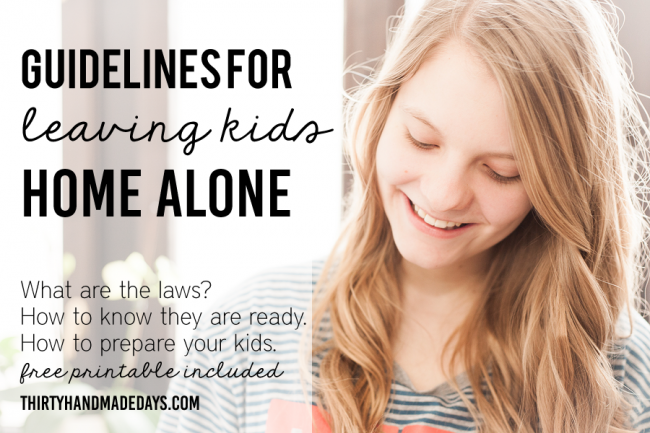 Try not to hide tasty treats in distant cabinets. Often children are looking for something to eat and climb into places where it is not safe.
Try not to hide tasty treats in distant cabinets. Often children are looking for something to eat and climb into places where it is not safe. 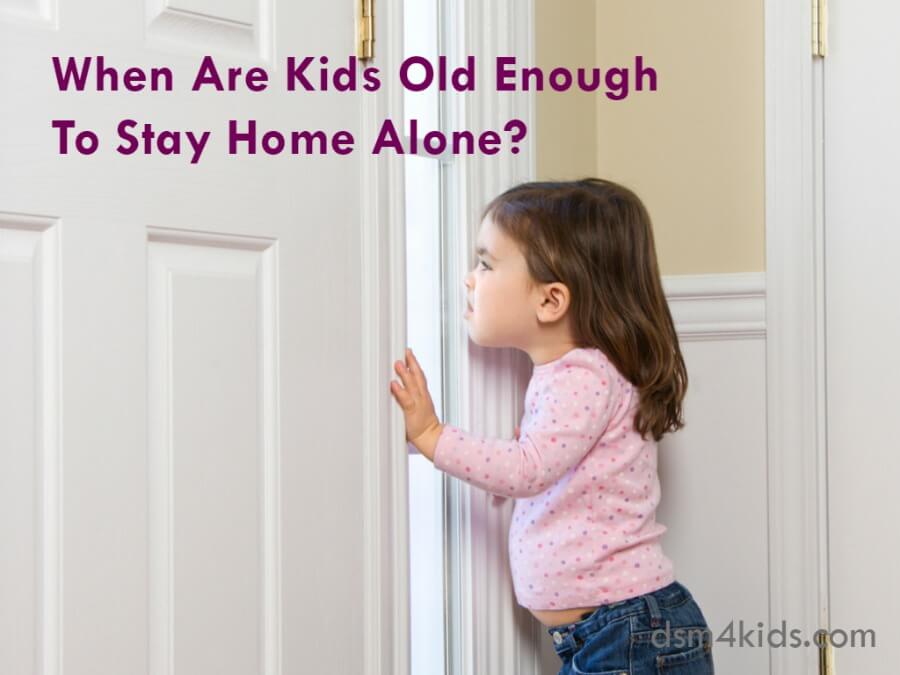
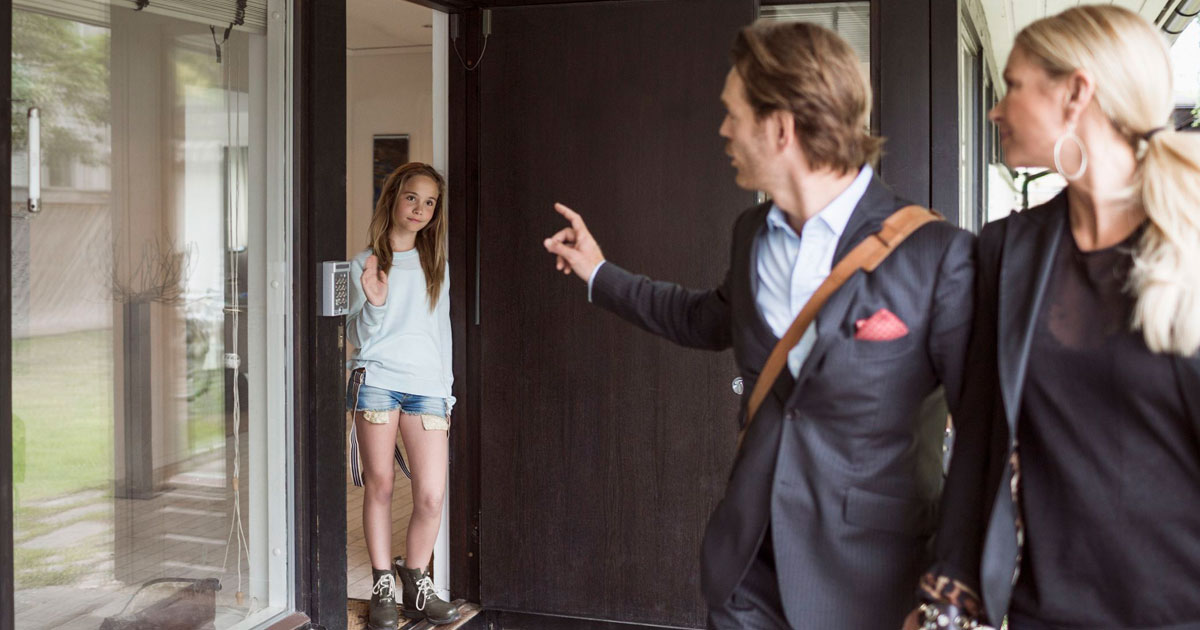 We are all afraid of external danger, we live behind iron doors, which, if something happens, cannot even be quickly opened. Children are locked up, often out of a false idea of caring, out of fear, a desire to avoid trouble, to be good parents: let them sleep in the car - don’t wake them up, let them stay at home - don’t carry them with you, there are infections. Sometimes you just want to come to your senses, recharge with impressions, save yourself from parental burnout. Many parents themselves grew up with an abandoned complex - they were regularly left alone with a key around their neck, and they just as easily leave their children alone, not only not seeing anything special in it, but even with a share of pride: mine can already sit by themselves. It’s great if nothing terrible happens, but it’s almost impossible to forgive yourself if something happens to a child in the absence of adults. Left in apartments, cars, children turn out to be a terrible sacrifice to our fears and false ideas about safety.
We are all afraid of external danger, we live behind iron doors, which, if something happens, cannot even be quickly opened. Children are locked up, often out of a false idea of caring, out of fear, a desire to avoid trouble, to be good parents: let them sleep in the car - don’t wake them up, let them stay at home - don’t carry them with you, there are infections. Sometimes you just want to come to your senses, recharge with impressions, save yourself from parental burnout. Many parents themselves grew up with an abandoned complex - they were regularly left alone with a key around their neck, and they just as easily leave their children alone, not only not seeing anything special in it, but even with a share of pride: mine can already sit by themselves. It’s great if nothing terrible happens, but it’s almost impossible to forgive yourself if something happens to a child in the absence of adults. Left in apartments, cars, children turn out to be a terrible sacrifice to our fears and false ideas about safety.